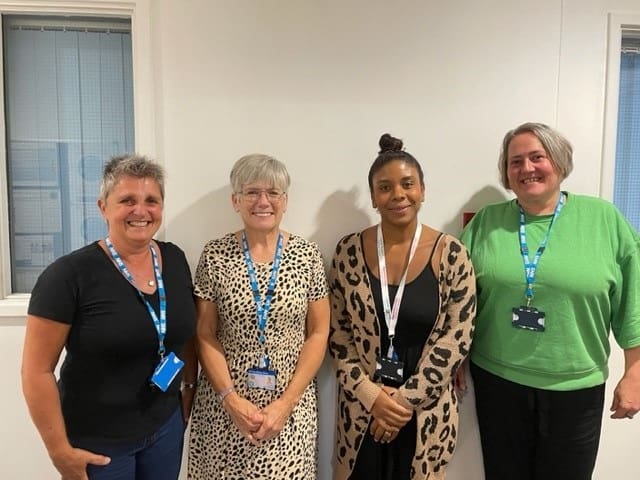
By Liz Crudgington
A pilot project aimed at helping to improve access to health and social care for homeless people has been extended.
The scheme was initially set up at the Queen Elizabeth The Queen Mother Hospital in Margate, but has now won funding to expand to the William Harvey Hospital in Ashford and the Kent and Canterbury Hospital.
The team has also been expanded, with an administrator joining a dedicated GP, homelessness nurse and housing specialist from charity Porchlight. A local authority housing specialist is also being recruited.
They work together with hospital staff to identify people who are homeless, at risk of becoming homeless, or in temporary accommodation, and anyone else who finds it difficult to access health services.
GP Dr Helen Burnett, who is clinical lead for the team, said: “Our initial six-month pilot showed there was a real need for this service and we were able to support a total of 60 people with their health and housing.
“More than three quarters of rough sleepers were given access to housing, and temporary accommodation placements increased by more than 450 per cent.
“Now the service has been extended to cover hospitals across east Kent we are looking forward to supporting even more people and helping them move on from homelessness.”
The team work with patients and agencies to ensure they have access to the support they need. They create bespoke care plans for each person, which could include supporting an application to local housing teams, referrals to alcohol and substance misuse teams and mental health teams if appropriate, and working to ensure a safe discharge from hospital.
They can also support people to access benefit payments and legal help, ensure they are registered with a GP for ongoing care, and reconnect them with family and friends.
Helen added: “We know that people who are homeless attend emergency departments more often, may be admitted more often, and can often stay in hospital for longer.
“They have higher rates of physical and mental health problems, and often, although not always, have issues related to substance abuse.
“We are here to help stop the revolving door of hospital admissions, and improve access to health and social care, supporting people to address their health, housing and social care needs.”
The team work with councils and charities to find solutions for individuals, helping them continue their recovery after leaving hospitals.

